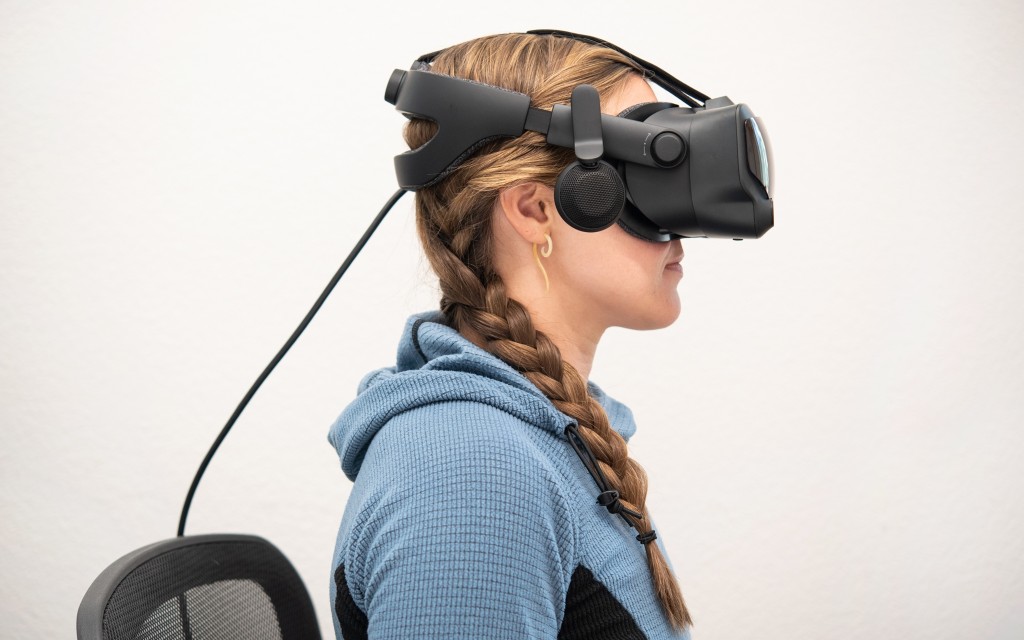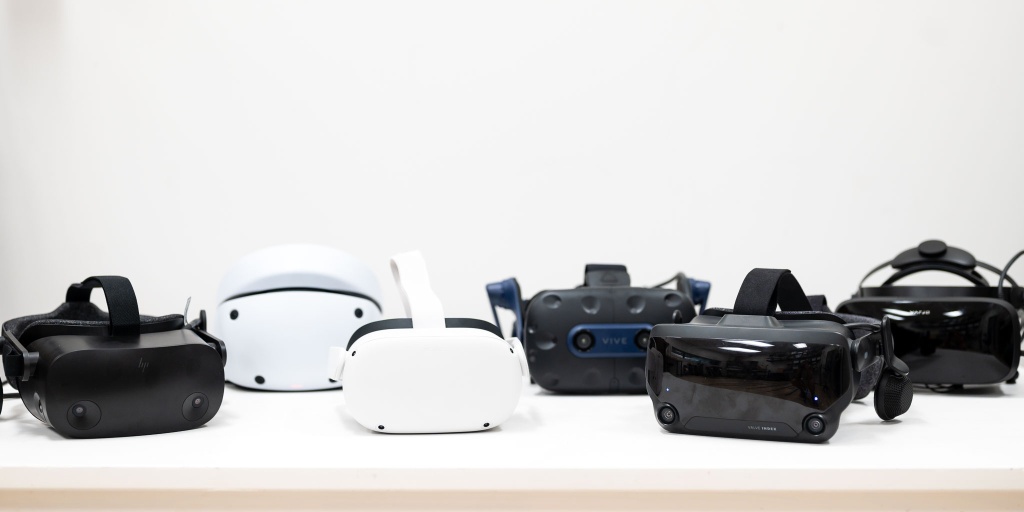To identify the best VR headsets available today, we conducted extensive research on over a dozen of the market's top offerings, then selected several standout models to purchase and weigh across our carefully developed, expertly tested metrics. The development of these five metrics was informed over several years of testing in this category and through experience with dozens of VR headsets scattered across all platforms and price points. We are confident that our metrics reflect the pillars of great VR hardware and that our testing stands up to the tall task of sussing out the defining strengths and weaknesses of every headset we review.
Tracking
Our tracking metric gauges the response and accuracy of headsets and motion controllers in VR. The two main programs used to conduct testing in this metric were our go-to rhythm-based game, Beat Saber, and the post-apocalyptic first-person shooter, Half-Life Alyx.
Headsets that could keep up with Beat Saber's 360-degree songs tended to score highest in tracking, and headsets that used external sensor units were more precise and reliable across the board.
Comfort
Our comfort metric weighs in on the material and design aspects that contribute to or detract from the headset's comfort level when used. For this metric, we were primarily concerned with the comfort of the visor on the face, room for eyeglasses within the visor, and how hot and humid the headset gets during play.
Material choices and head strap/headband design played a huge role throughout these tests. Headsets that kept the weight of the visor off the face scored better. Likewise, units that offered active cooling or less insulating face mask material scored better with regard to heat. Visors with more room inside for glasses or ergonomic cutouts for the stems of the glasses scored higher, too.
Visuals
This metric rates the headset's screen clarity and field of view (FOV). We are most concerned with field of view (FOV) and screen door effect (SDE) when evaluating VR headset visuals. Field of view is the degrees you can see around a room. SDE is how visibly pixelated the screen in front of you appears to be, much like looking through a mesh screen door. VR headsets with little to no SDE score higher, and FOV is more related to the headset's hardware design.
We used Realovirtual Workshop to test the FOV in every headset except the PSVR2, which does not offer the app. For the Meta Quest, we used Airlink to tether to a PC to run the app. We used Beatsaber to observe SDE and the general crispness of text and graphics, or lack thereof, in every headset. Headsets with lower SDE and higher FOV scored highest in this metric.
User Friendliness
Our daily use metric rates VR headsets on the user experience of putting them on and entering VR on a regular basis, as well as the convenience of fine-tuning the fit. This is also the metric where we rate the headset's speaker and mic quality and the method by which interpupillary adjustment is made (IPD).
We carefully recorded the steps necessary to do the initial fitting for each headset, then did the same for the process of taking the headset on and off. Headsets that slide on and off with ease, time after time score higher in this metric. Headsets with quality audio (in and out) and speakers that don't get in the way during fitting also score higher.
IPD refers to the distance between your eyes, and the closer that VR headset lenses can get to this number, the closer the alignment with your eyes and the higher the immersion in VR. Headsets with automatic or conveniently located linear IPD adjustment controls scored higher.
Ease of Setup
The ease of setup metric measures the user experience for each VR headset's initial setup process. Headsets that required more advanced PC hardware and external sensor units scored lower in this metric due to the added cost and complexity of setting them up. Headsets with integrated sensors, streamlined tutorials, and intuitive VR barrier setups scored higher.






